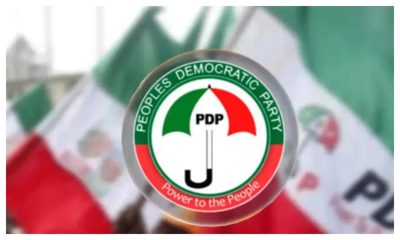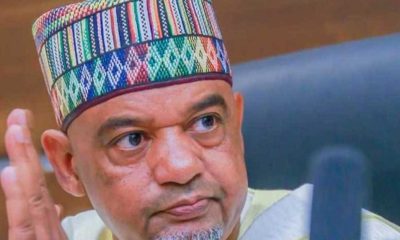Politics
Obi Lacks Platform for 2027, PDP Chieftain Alleges

A chieftain of the Peoples Democratic Party (PDP), Chief Dan Ulasi, has ignited a fresh political debate with his assertion that former Labour Party presidential candidate, Mr. Peter Obi, currently lacks a viable political platform ahead of the 2027 general elections. Speaking on Arise Television’s “Morning Show,” Ulasi acknowledged that while the Nigerian Constitution grants every citizen the right to contest elections, Obi’s political future remains uncertain due to his perceived lack of clear alignment with any defined party structure. The comments, though seemingly critical, are a reflection of the intricate political maneuvering and behind-the-scenes negotiations already underway as the nation sets its sights on the next electoral cycle.
Ulasi, a long-standing figure within the PDP, pointed to Obi’s political journey since the 2023 elections. “To the best of my knowledge, he ran last time with Labor Party. He’s attended the luncheon of what do they call it ADC. So I don’t know what his platform will be,” he said. The PDP stalwart’s observation goes beyond mere speculation; it highlights a widely reported internal crisis that has plagued the Labour Party since the 2023 elections. Dependable NG confirms that while Obi remains a member of the Labour Party, the party itself is embroiled in a significant leadership tussle between two opposing factions, one led by the National Chairman, Julius Abure, and another supported by Obi himself and a significant portion of the “Obidient” movement. This deep-seated internal conflict has created a situation where the party’s structure is fragmented, making it a challenging vehicle for any presidential ambition. The “Obidient” movement, a grassroots political force that propelled Obi into national prominence, is also seen as largely independent of the formal party machinery, which further complicates his standing.
Despite his pointed critique, Ulasi was quick to acknowledge the immense political capital that Peter Obi brings to the table. He expressed optimism that Obi could bring tremendous value if he chose to return to the PDP, a party he left shortly before the 2023 elections. “I’ll be happy if he joins PDP, because he will bring his credibility to bear on the party as we are reorganizing. I mean, he’s not a name you want to introduce in Nigerian politics, any party that has him today, we know that they have already made more than 30, 40% of the election because he has tremendous support across this country,” Ulasi stated. This sentiment is not just a personal opinion; it is part of a broader, well-documented strategy by the PDP to form a formidable coalition of opposition forces ahead of 2027. Dependable NG confirms that the PDP’s reconciliation committee has held strategic meetings with Peter Obi to explore the possibility of a united front against the ruling All Progressives Congress (APC). The open invitation from a senior PDP chieftain is therefore a calculated political move, a public acknowledgment of Obi’s influence and a clear signal that the party is willing to welcome him back into its fold.
The entire political conversation surrounding Peter Obi’s future is a testament to the power of his grassroots movement and his unique appeal to a large segment of the Nigerian electorate, particularly the youth. While the “Obidient” movement remains a formidable force, its lack of a unified and stable political platform presents a significant challenge. Ulasi’s comments serve as a timely reminder that in Nigerian politics, a candidate’s popularity is only one piece of the puzzle; the strength and cohesion of their political vehicle are equally critical to their success. As the countdown to 2027 begins, the political chess game is in full swing, with Obi at the center of a tug-of-war between his current party, his former party, and his independent movement. The eventual outcome of this realignment will undoubtedly shape the political landscape and determine the trajectory of the next presidential election.












